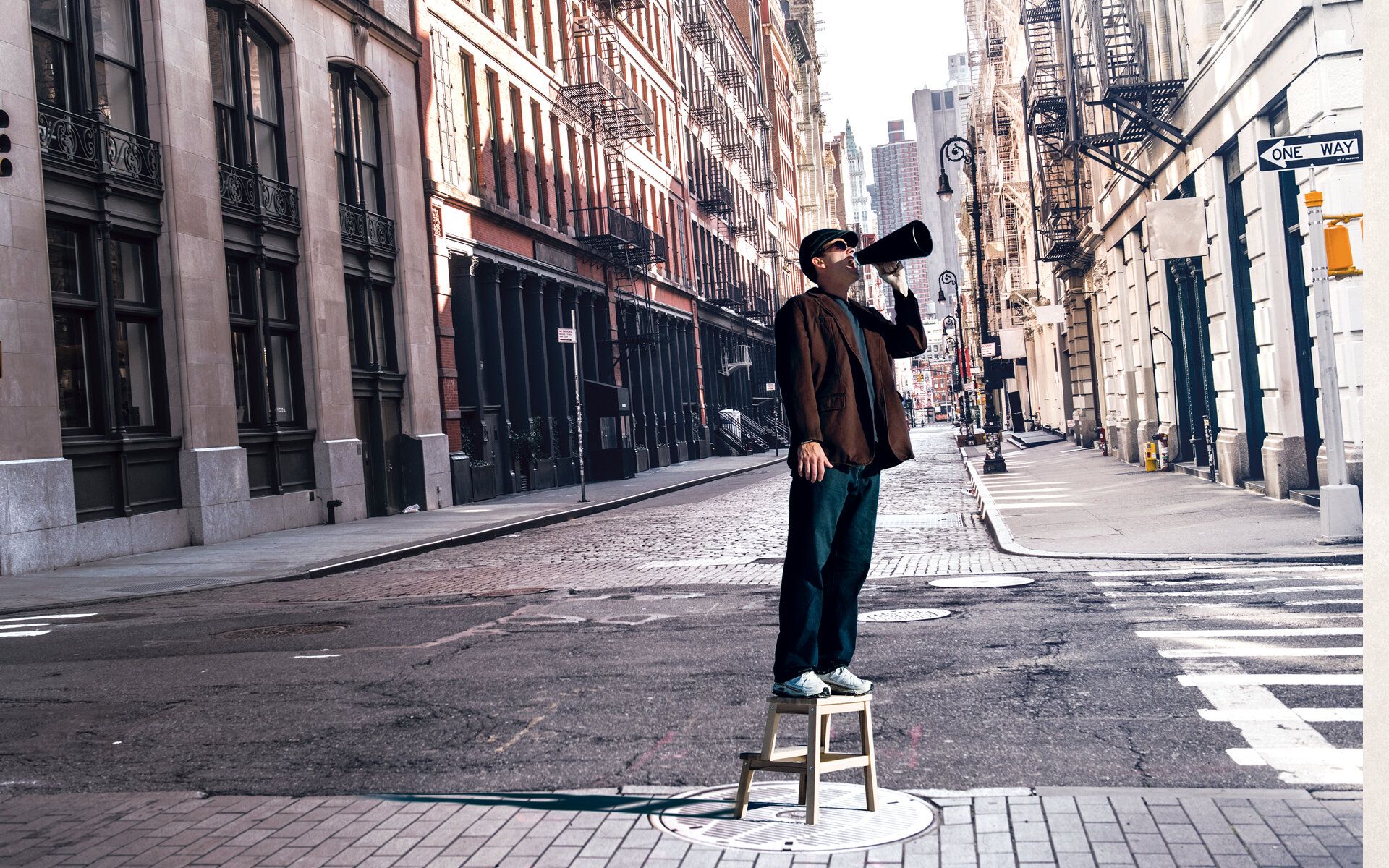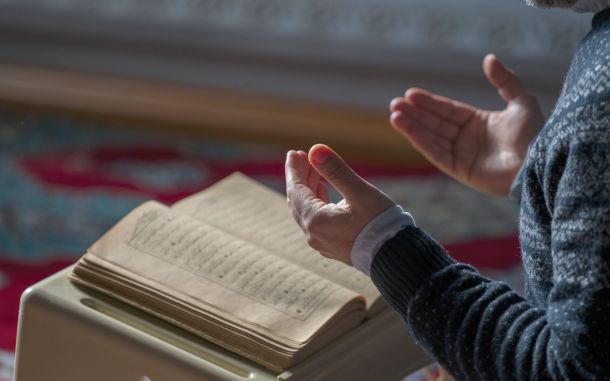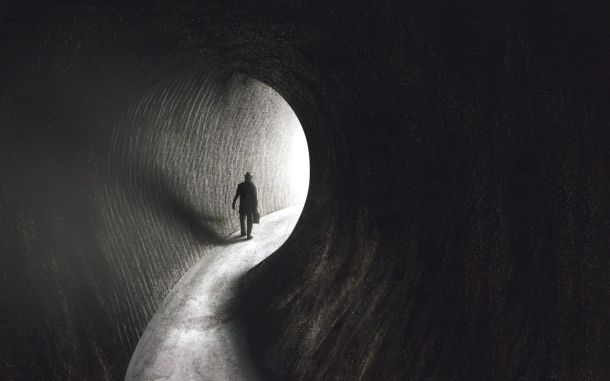The Hater and the Madman

In This Article
-
The hater, my son the hater – enraged by his latest drug of choice – stood on his stepstool in the town square and yelled at us. His topic today was the same as yesterday’s; the words didn’t matter. He hated.
-
new morning came to interrupt my despair. Once again, I walked to the town square. Once again, I tried to reason with unreasoning anger. Once again, I failed. And so it went. Day after day, it went on.
-
Talking I could see their calm acceptance and patient tolerance had gone a long way toward reducing the anger most townsfolk felt toward my son and myself.
The hater, my son the hater – enraged by his latest drug of choice – stood on his stepstool in the town square and yelled at us. His topic today was the same as yesterday’s; the words didn’t matter. He hated.
I made the same mistake I made so many times before. I caught his eye. I engaged him and tried to reason with him. I applied logic to emotion with just as much success as quoting the constitution to a swarm of angry bees. Finally, I walked away, humiliated once again by unreason and sorrow. I was aware of nothing but my failure and his hatred, and all day I let myself feel reduced by that encounter.
A new morning came to interrupt my despair. Once again, I walked to the town square. Once again, I tried to reason with unreasoning anger. Once again, I failed. And so it went. Day after day, it went on.
One day, I was stopped by a stranger who asked me the way to the town square. He had heard, he said, of the madman and felt it would be entertaining to watch his antics.
“Why?” I asked him. “Why would you listen to the hatred? Why listen to him standing there on his stool, yelling at us all? Do you think it funny?”
The man sniffed, then spoke clearly and precisely.
“No, not the hater. I mean to watch the madman. The one who argues with the hater. The one who fails every day, but does the same thing the next day, without fail.”
Finally, I saw what I had become, what I could not see while engaged in insanity with the hater. I saw the madman.
That day I did not engage the hater. I did not try to help him. That day I engaged myself on my own behalf so that I would find the life I had lost and my own steps in the eternal dance, not his. That day, I left my son to his madness so that I could address my own. Where before I had never approached the locals, I began conversations with older men and women who tarried in the afternoons, sitting at the sides of the square then in shade and drinking their strong coffees, playing endless games of chance with faded cards and marked dice. I willingly lost small monies to them and bought coffees, and eventually learned of their lives and kin.
Later, many days later, my son again carried his stool to the market square and stood upon it. As he began his tirade, I slipped into my seat at the coffee shop. The old man, the easterner who makes the coffee, brought me a pot and mug and my daily biscuit. Friends came over and we shared silence. I had changed this year, since I stopped trying to change my son, and I gained friends. They were there all along, but I did not see them until I gave myself permission to see something other than him.
There was no use trying to talk until the shouting was done. My son was punctual as any clock, if more obnoxious.
But just then, after only a few minutes, and as I sat there in comforting presence of my friends, the shouting stopped. From one word to the next, it just stopped and the hater stepped down from his stool and began to walk away. He hesitated and looked my way, and my heart thudded but there was nothing more, just a look.
I called for more coffee and my friends and I began to chat about the day ahead, our duties, and what we’d heard of the wider world. I was sad, but I had found some measure of peace since I stopped my own mad attempts to change my son. He was what he was, as was I, and I felt free to live again. It was a gift I had given myself.
After weeks, perhaps months, change began. The hater, having finished his spew, picked up his stool and walked through the square to where I sat. This had happened several times before, and each time I had motioned for my friends to leave. Each time, as they left, the hater turned about and left as well. Each time, I sat alone and cherished my action, my refusal to engage.
I resented his approach. I had come to cherish these mornings with my friends. These were women known as wise within the community and men whose words were heeded. That they had chosen to sit with me, the madman and father of the hater, had astonished me at first. Yet, I could see their calm acceptance and patient tolerance had gone a long way toward reducing the anger most townsfolk felt toward my son and myself. Truth to tell, it had done so for me as well, and I had come to look forward to those mornings as my safe harbor. And now the hater, my son the hater and addict, threatened that as well.
I had enough. That morning I did not ask my friends to leave, and they stayed and watched in calm surmise as the hater approached. As he placed his stool down by us and sat upon it, the wise around me smiled calmly at the hater, then turned their gaze upon me. I felt flushed with anger, near to bursting. I felt that my very survival had been challenged and I rose to spew forth my own hate at this violation of my sanctuary. Then, one of the women spoke, but to the hater, ignoring me and my righteous indignation.
“Welcome, young man. We’ve been waiting for you. Have a seat.”
One of the others, an older man, then turned to me where I stood, fists clenched and shaking with rage and fear.
“You are welcome to stay, of course, as long as you can be calm. We’ve spent many mornings here preparing a safe harbor. All are welcome.”
And having heard what they were telling me, and understanding my own true nature, I took my stool and walked to the center of the square and placed myself where I belonged.
We have taken turns, my son and I, in the market square. One day soon, I hope to have the courage my son demonstrated, to turn away from the madness and to take a seat at the table of sanity. My son waits there for me, in the presence of the wise, in the shadow of the divine, in safe harbor.









